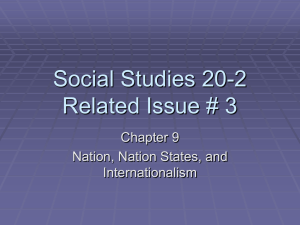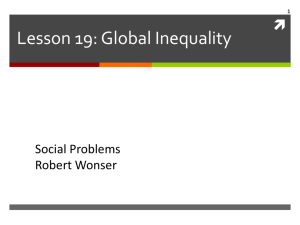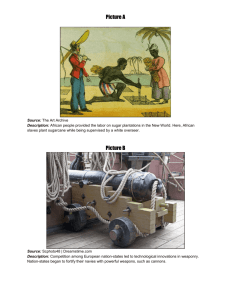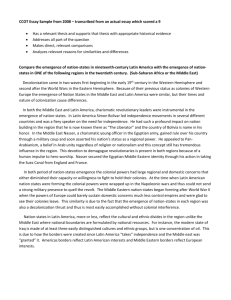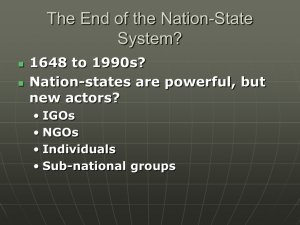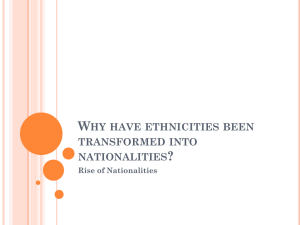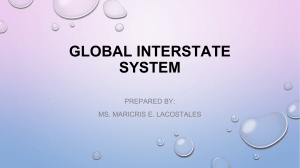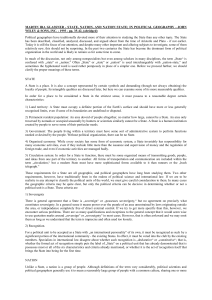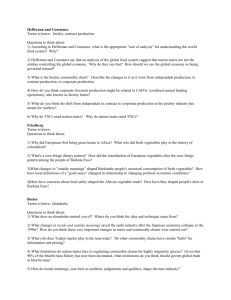Nations, Nation-States, and Internationalism
advertisement
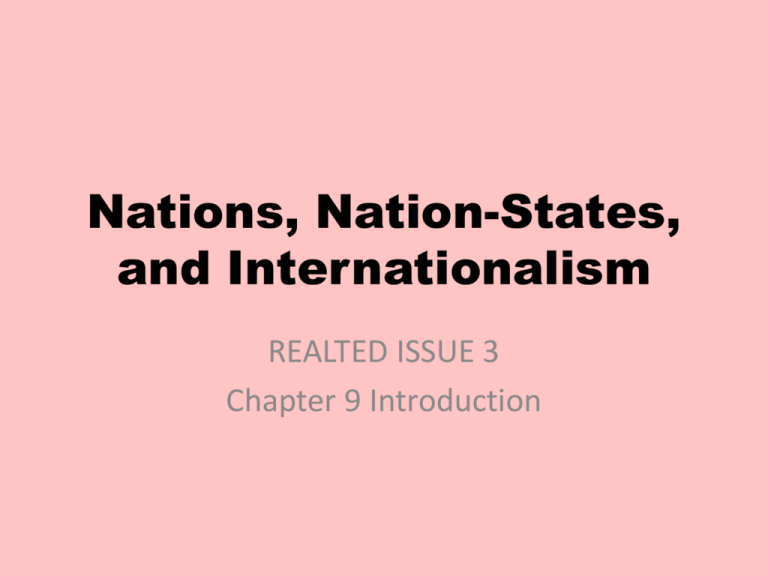
Nations, Nation-States, and Internationalism REALTED ISSUE 3 Chapter 9 Introduction Does international involvement in international affairs benefit nations and nation-states? To what extent? What motivates nations and nation-states to become involved in international affairs? What are some common motives? • Psychologist believe that people’s behavior is motivated by – Needs- things that people need to survive and – Wants- things that people desire. Wants are not necessary to survive Maslow's Hierarchy of Needs Needs and Motives of Successful Nation-States • The behavior of nations and nation-states is motivates by the collective needs and wants of the countries people. • The actions of responsible government serve the national interest. • Many successful nation-states, especially those with democratic governments, are motivated to achieve and maintain –Economic stability –Peace and security –Self-determination –Humanitarianism Economic Stability Nations and nation-states serve their national interests by seeking ways to achieve economic stability. For example- A national government might decide to provide more money for training apprentices in skilled trades. By creating a more skilled workforce, the government will attract more industries to the country, which will generate more job opportunities. National government might also develop trade policies that support exports. Strong exports help keep employment levels high. Positive Effects of Increasing Exports PEOPLE WITH MORE MONEY TO SPEND MORE JOBS MORE GOODS & SERVICES PURCHASED INCREASED DEMAND Peace & Security • Nations & nation-states often promote safety & security by passing laws, creating police forces, and making rules for the workplace. They also provide security through their interaction with the rest of the world. • Most national states are motivated to develop peaceful relations with the rest of the world, as well as, create alliances with one or more countries to protect themselves against conflict. Example: NATO & NORAD Self-Determination • Nations and nation-states are strongly motivated to control their own future. They may do this by seeking sovereignty – In the 1800s many Canadians wanted to determine their own future & become independent of Britain • Other nations decide their interests can be served best if they are part of a larger nation-state – Since the creation of Nunavut in 1999, Inuit peoples in Canada have controlled many aspects of their destiny in Canada- land resources, education & government Humanitarianism • Nations & nation-states are also motivated to take action to relieve suffering and protect the innocent. • This motivation is called humanitarianismacting to support the dignity and wellbeing of all people. • Humanitarian efforts also extend beyond Canada’s national borders- natural disasters, disease, war & conflict can cause tremendous suffering.
